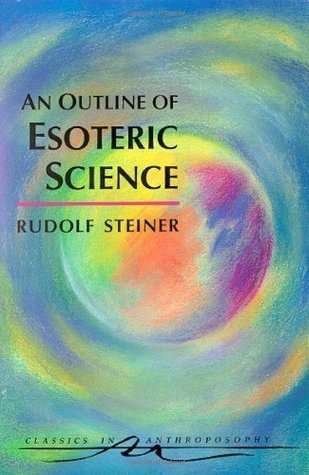What do you think?
Rate this book


Esoteric science is the science of what takes place esoterically, in the sense that it is perceived not outside in nature but where one's soul turns when it directs its inner being toward the spirit. Esoteric science is the opposite and counterpart of natural science. �Rudolf Steiner
As vital and relevant as when it was first published in 1910, this masterpiece of esoteric, Rudolf Steiner worked and reworked on rosicrucian cosmology for many years to make it increasingly precise and accurate. This work remains the most effective presentation to date of a spiritual alternative to contemporary materialist cosmologies and the Darwinian view of human nature and evolution.
In this basic work of spiritual science, readers learn how the creation and evolution of humanity is embedded at the heart of the vast, invisible web of interacting cosmic beings, through whom the alchemical processes of cosmic evolution unfold. There are also descriptions of the various bodies of the human being, their relationship to sleep and death, and a detailed, practical guide to the methods or exercises, including the Rose Cross Meditation," through which such initiation knowledge can be attained.
Most remarkable and revolutionary of all, perhaps, is the central function that Rudolf Steiner allots to the Christ and to the entrance of Christ into earthly evolution through the Mystery of Golgotha.
Classics in Anthroposophy Series.
448 pages, Kindle Edition
First published January 1, 1910